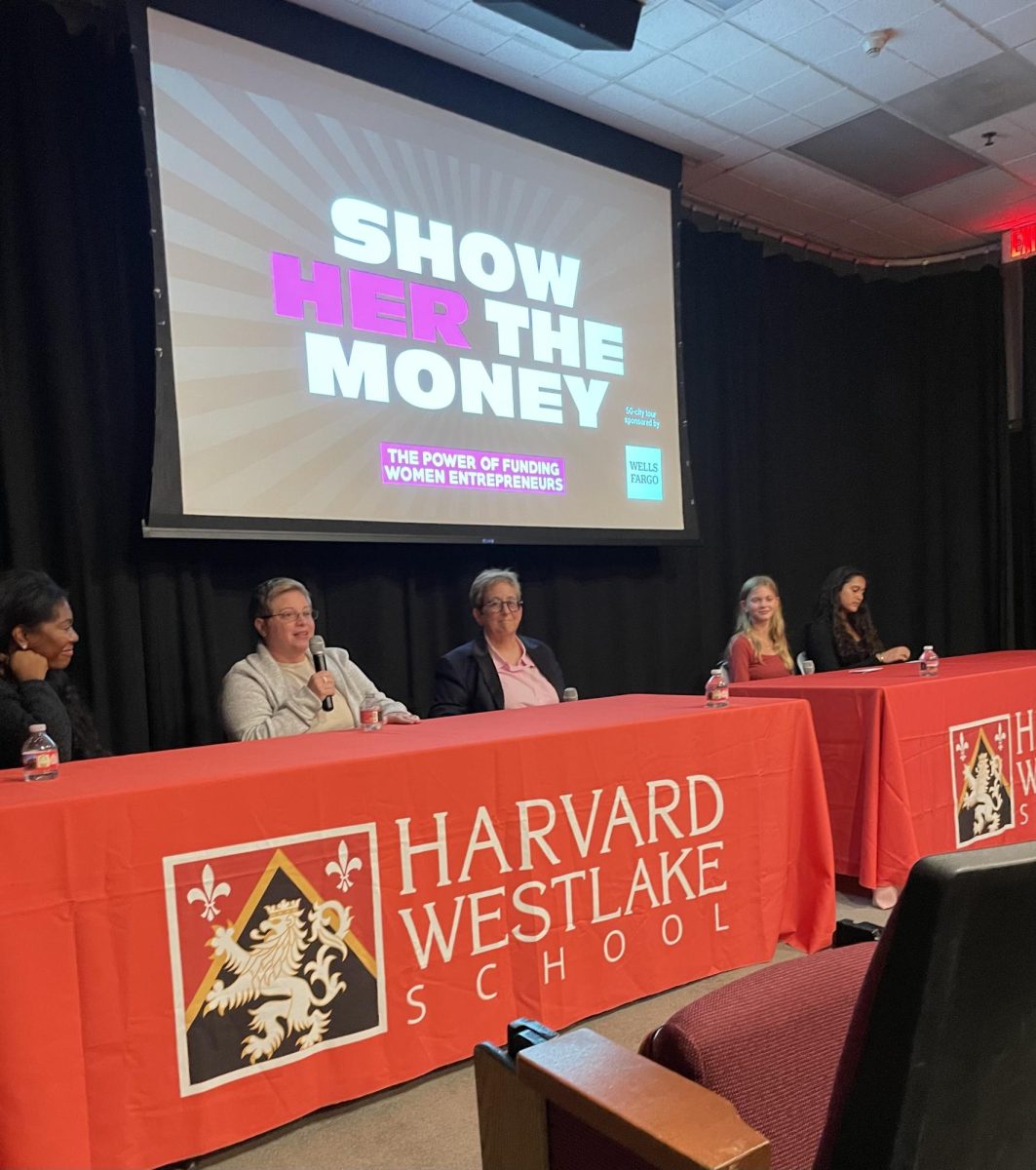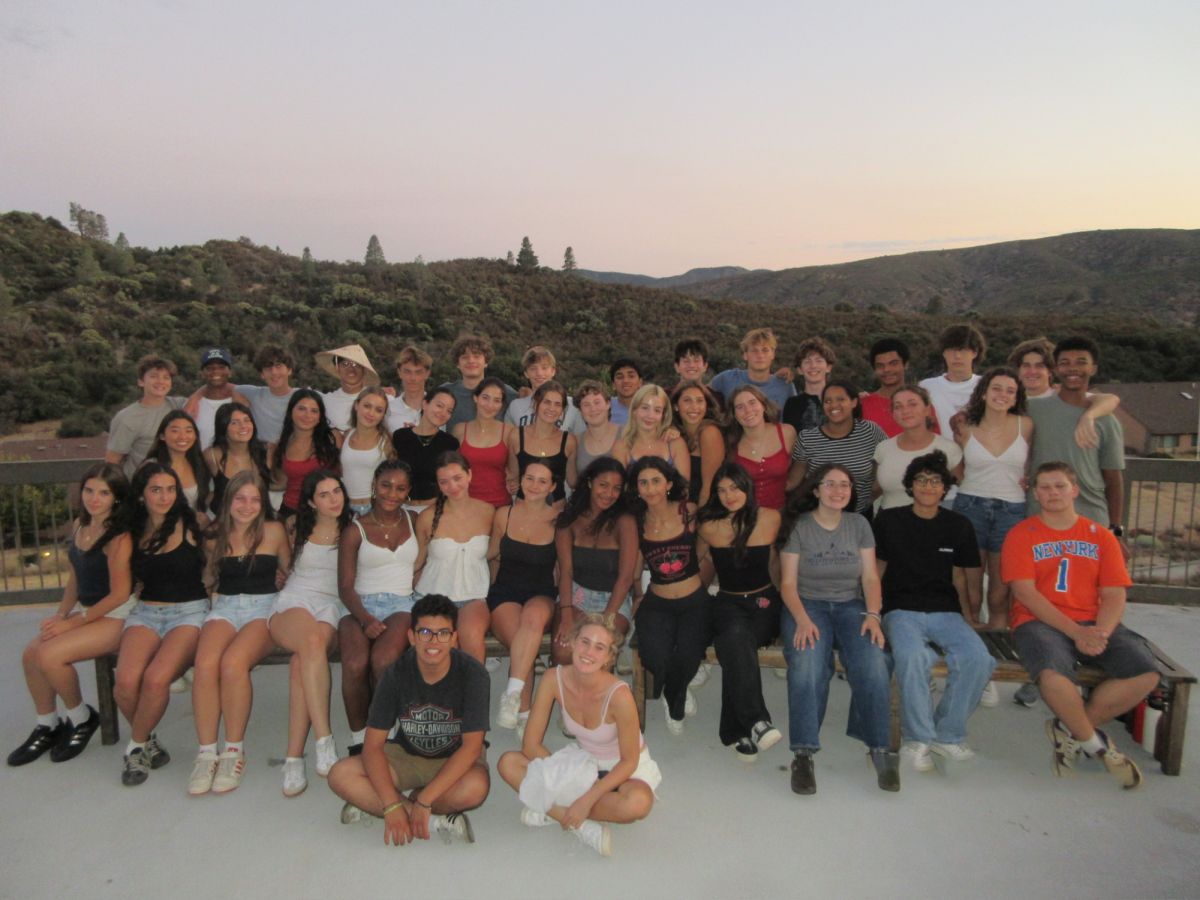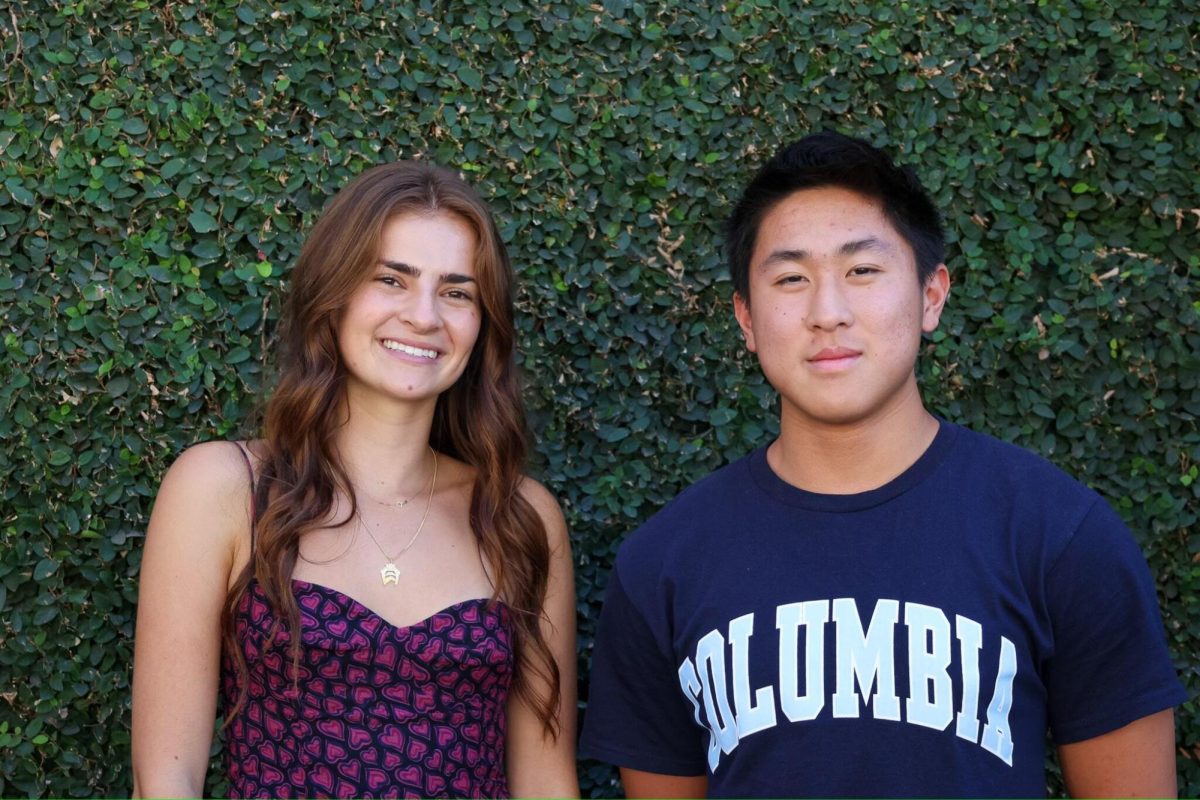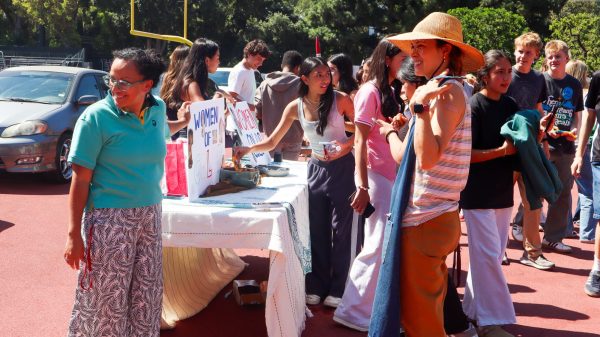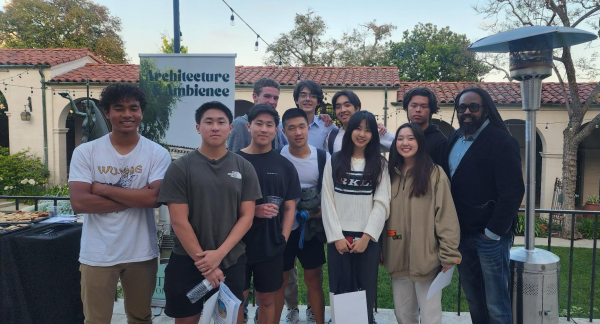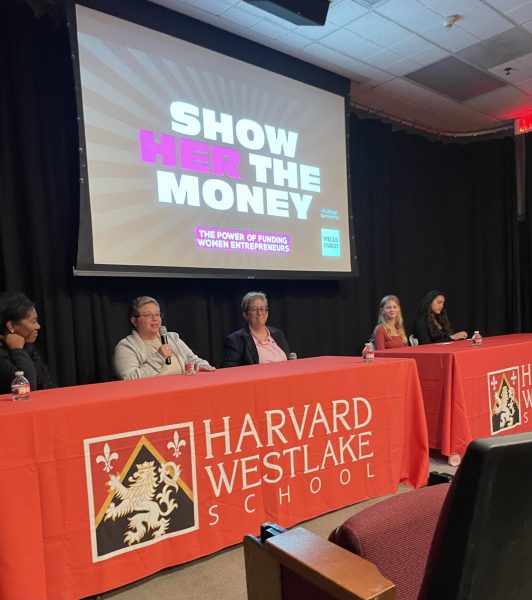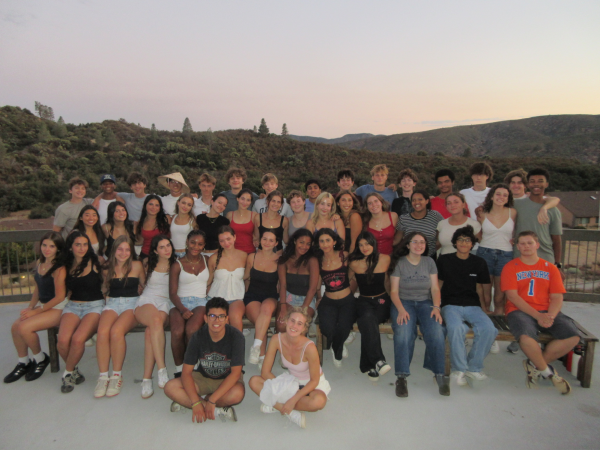Nobel Prize winner and UCLA professor Dr. Andrea M. Ghez speaks at flex time
Nobel Prize winner and Professor at the University of California, Los Angeles (UCLA) Department of Physics and Astronomy Dr. Andrea M. Ghez (Evan ’19, Miles ’24 ) spoke to students and faculty about her career as an astrophysicist during Community Flex Time April 14.
While working at UCLA, Ghez received the Nobel Prize for her role in the discovery of a supermassive black hole in the center of the Milky Way galaxy. However, Ghez said she received pushback at first when she proposed a plan to use UCLA’s highly-regarded telescopes to try to understand the center of the universe.
“I have to say, in 1994, when [my proposal] was first turned down, it was an interesting moment of having to realize: ‘Okay, now what do you do?’” Ghez said. “What you do is you have to convince people that the fact that you’re doing something new and different is indeed risky, but it’s a risk well worth taking.”
Ghez answered questions from students after a brief introductory presentation
Ghez said she discovered that sports were an important outlet to meet people different than her usual colleagues. She said in a male-dominated science world, it helped her to have a new community outside of the workplace.
“At Massachusetts Institute of Technology (MIT) at the time that I was there, there were 25% of the department women. By the time I got to a physics PhD program, it was 5% women,” Ghez said. “Increasingly, as a result, having a community that was outside my professional community took on more meaning than just being physically fit. It became a place to have a community where I wasn’t a minority and could make friendships outside my professional world.”
Lily Bailey ’21 and Ethan Rose ’22 posed questions from the community in a Q&A session that followed Ghez’s presentation. Bailey, who has worked in multiple science labs, said Ghez’s experience overcoming gender boundaries inspired her.
“My main takeaway was that there are no barriers or limits to what an individual can accomplish, no matter what society or history may tell them,” Bailey said. “Dr. Ghez is only the fourth female Nobel Laureate in physics, and while history may have suggested her ability to win as an unlikely feat, her accomplishments have spoken for themselves and she has in many ways transcended a gender barrier that has existed in STEM fields for so long.”

